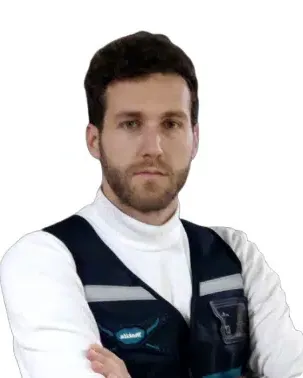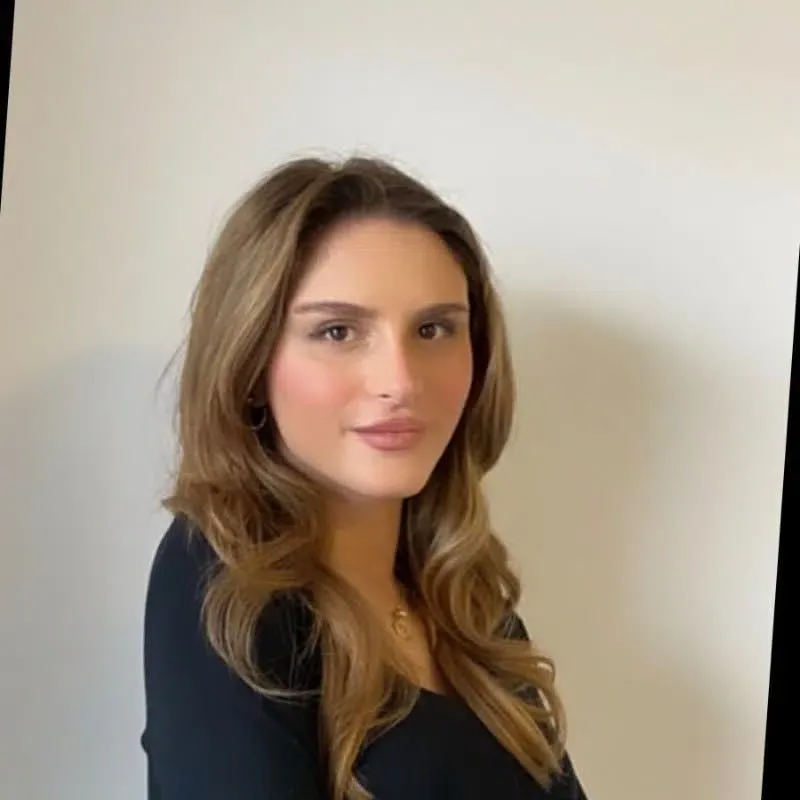Formative Usability Evaluation: Ensuring Innovation, Safety, and User-Friendliness in Medical Device Design at Nectar
In the dynamic world of medical devices design, formative evaluation is a pivotal element in the product development lifecycle. At Nectar Product Development, we recognize that medical device design engineering is a complex journey filled with challenges. Formative evaluation, especially in the usability aspect, is crucial in ensuring that these devices are not just cutting-edge but also safe, effective, and user-centric.
At Nectar Product Development, we understand that the intricate process of medical device design engineering is fraught with challenges. The role of formative evaluation, particularly formative evaluation, is paramount in certifying that medical devices are not only innovative but also safe, effective, and user-friendly.
For Nectar Product Development, formative evaluation in medical device industrial design is an indispensable process. This crucial phase entails the systematic collection and analysis of data on user interactions with a medical device, even in its nascent stages. Our primary aim is to ensure that each device is not just operational but also intuitive and user-friendly.
Grasping the essence of formative usability evaluation is to understand the user’s experience from their initial encounter with the device. It’s an investigation that goes beyond mere physical interaction; it probes into the user’s psychological and emotional reactions. This early feedback is instrumental in sculpting the user experience design of the device, ensuring it fulfills and surpasses user needs and expectations.
The significance of formative evaluation also encompasses safety and effectiveness. Identifying potential issues early in the medical device design process allows us to implement necessary modifications to mitigate risks and boost the device’s usability. This forward-thinking method benefits not just the end-users but is also a strategic move for regulatory compliance with FDA standards and other regulatory mandates.
During the crucial phases of formative evaluation, a special focus is given to both formative and summative testing. This methodology is essential to grasp how users engage with the medical device and to spot any potential usability problems promptly. At Nectar Product Development, we incorporate these insights into our medical device design and development, ensuring a user-centered design process. Integrating formative evaluation is a fundamental aspect of our design control strategy. This method not only aids in refining the product based on user input but also guarantees that the device meets the highest standards of safety and efficacy.
Moreover, formative evaluation at Nectar is an interdisciplinary endeavor. Our team of experts in medical product development and scientific software and instrument development collaborates closely, ensuring that every aspect of the device, from the graphical user interface (GUI) to the physical design, is scrutinized and optimized for the best user experience. As a leading medical device design consultancy, we prioritize seamless integration and functionality.
Understanding Formative Usability Evaluation
Formative usability evaluation, a cornerstone of medical device design services, is a methodical process conducted during the early stages of medical device development. It involves iterative testing and refinement, with a keen focus on user interaction and experience (UX). The primary goal is to identify and rectify potential use errors and hazardous situations, thereby enhancing the overall safety and effectiveness of the medical device. This proactive approach is integral to our medical product development strategy.
The Role of FDA and Regulatory Compliance
Adhering to FDA guidelines and achieving ISO 13485 certification are crucial in formative evaluation. These regulatory standards, including ISO 14971 and IEC 62366, provide a comprehensive framework for assessing risk and validating the usability of medical devices. At Nectar, compliance with these benchmarks is a top priority, ensuring FDA approval and that our products meet rigorous safety and quality standards.
Phases of Formative Evaluation in Medical Device Design
In the medical device design process, the phases of formative evaluation are vital to ensuring that the final product is user-friendly, safe, and meets all necessary regulatory requirements. Each phase – discovery testing, configuration evaluations, risks and hazards testing, and human factors testing – plays a unique role in shaping the device. This structured approach allows designers to iteratively refine the product, addressing any potential issues from a user’s perspective and ensuring that the device aligns with the needs and safety of the end user.
Discovery Testing
The initial phase, discovery testing, involves gathering qualitative findings about user needs and expectations. This early stage feedback is crucial for aligning the device design with actual user requirements and scenarios.
Configuration Evaluations
Configuration evaluations, a key service offered by our medical device design company, focus on assessing the device’s layout and controls. This phase ensures that the design is intuitive and aligns with the user’s natural interactions and workflows, promoting ease of use and efficiency.
Risks and Hazards Testing
Identifying and mitigating risks and hazards is a pivotal part of risk management in medical devices and formative evaluation. This phase involves rigorous testing to uncover potential risks associated with the device’s use, including hazard-related use scenarios that might not be immediately apparent, thereby ensuring the highest level of safety.
Human Factors Testing
Human factors testing is pivotal in medical device user interface design, exploring how real users engage with the device. It scrutinizes the user interface (UI) and graphical user interface (GUI) to gauge usability and effectiveness. This phase is essential for pinpointing design elements that might cause use errors or confusion.
Integrating Formative Evaluation in Nectar’s Design Process
Nectar Product Development seamlessly incorporates formative evaluation into our design process. We blend expert analysis with insights from key opinion leaders (KOLs) and comprehensive data collection, ensuring our medical products excel in innovation and user-centricity.
Importance of User Interface and Experience
At Nectar, the significance of user interface and experience is paramount in our role as a medical product designer. During the formative evaluation stage, we prioritize understanding and refining user interaction with medical devices, which is critical for successful design.
For medical device designers, crafting the user interface is akin to building a bridge between technology and its users. It includes all user-interactive elements like screens, buttons, and icons. The meticulous design of these components is crucial for intuitive use, allowing all users, including healthcare professionals and patients, to operate devices efficiently, a necessity in urgent healthcare scenarios where ease of use is critical for patient care.
Furthermore, the medical device user experience transcends the tangible interface, involving the user’s perceptions and emotions during device interaction. In medical device design, fostering a positive user experience is about considering the device’s comfort, instruction clarity, and task simplicity. Enhancing user satisfaction through a positive experience can also boost the safety and effectiveness of the medical device.
At Nectar, our medical device design and engineering process is enriched with UX considerations, employing various strategies. We delve into extensive user research to fathom the needs and challenges faced by different user demographics. Our design choices, rooted in this research, ensure the final product’s technical excellence and user-friendliness.
Transition to Summative Evaluation
Following meticulous formative evaluation, we proceed to summative evaluation – the definitive test of the product’s usability and safety before market launch. This stage is indispensable for affirming that the medical device satisfies all regulatory demands, ensuring design verification and market readiness.
Nectar’s Commitment to Quality and Safety
Nectar’s unwavering dedication to excellence in medical device engineering is fundamental to our identity. In a sector where products have a direct bearing on human health and wellbeing, we are acutely aware of the substantial responsibility that accompanies the design and development of medical devices.
Our dedication is deeply embedded in every phase of the development cycle, starting with a comprehensive grasp of the users’ needs and the settings where the devices will operate. As a leading medical device design firm, we focus on the dual priorities of functionality and safety, ensuring each product meets the most stringent quality benchmarks.
Our commitment includes strict compliance with industry norms and guidelines. Adhering to ISO 14971, which outlines a risk management framework for medical devices, is an integral aspect of our methodology. We carry out extensive risk evaluations to detect and alleviate any potential dangers related to the devices’ usage.
Moreover, we incorporate Quality Management Systems that align with ISO 13485 standards, guaranteeing a uniform and superior approach to medical device design and production. Our focus on elements such as traceability, accountability, and ongoing enhancement underpins our commitment to quality.
Safety and quality are also reflected in our approach to user interface design. We recognize that medical device safety hinges not only on its physical attributes but also on user interaction. To prevent hazardous situations, we aim to eradicate misunderstandings or usage errors through intuitive design and user-friendly interfaces.
At Nectar, by engaging with key opinion leaders and authorities in medical device design consulting, we gather essential insights that shape our design and development trajectory, ensuring our products are not just innovative but truly meet the needs of healthcare professionals and patients.
Formative Evaluation as a Pillar of Medical Device Development
To encapsulate, formative evaluation is a crucial element of medical device design, essential for creating devices that are safe, effective, and user-centric. At Nectar Product Development, we utilize this process to forge medical device solutions that not only adhere to regulatory requirements but also establish new standards in usability and patient care. Our cross-disciplinary strategy merges engineering prowess with a focus on user experience, placing us at the vanguard of medical device innovation.
For more information on our approach to medical industrial design and development, or to discover how our medical device design service can benefit your projects, please feel free to contact us.
Also, stay informed about the latest trends and insights in product development by tuning into Nectar’s Podcast, “The Product Development Book“, an excellent resource for those in the medical device development industry.



























